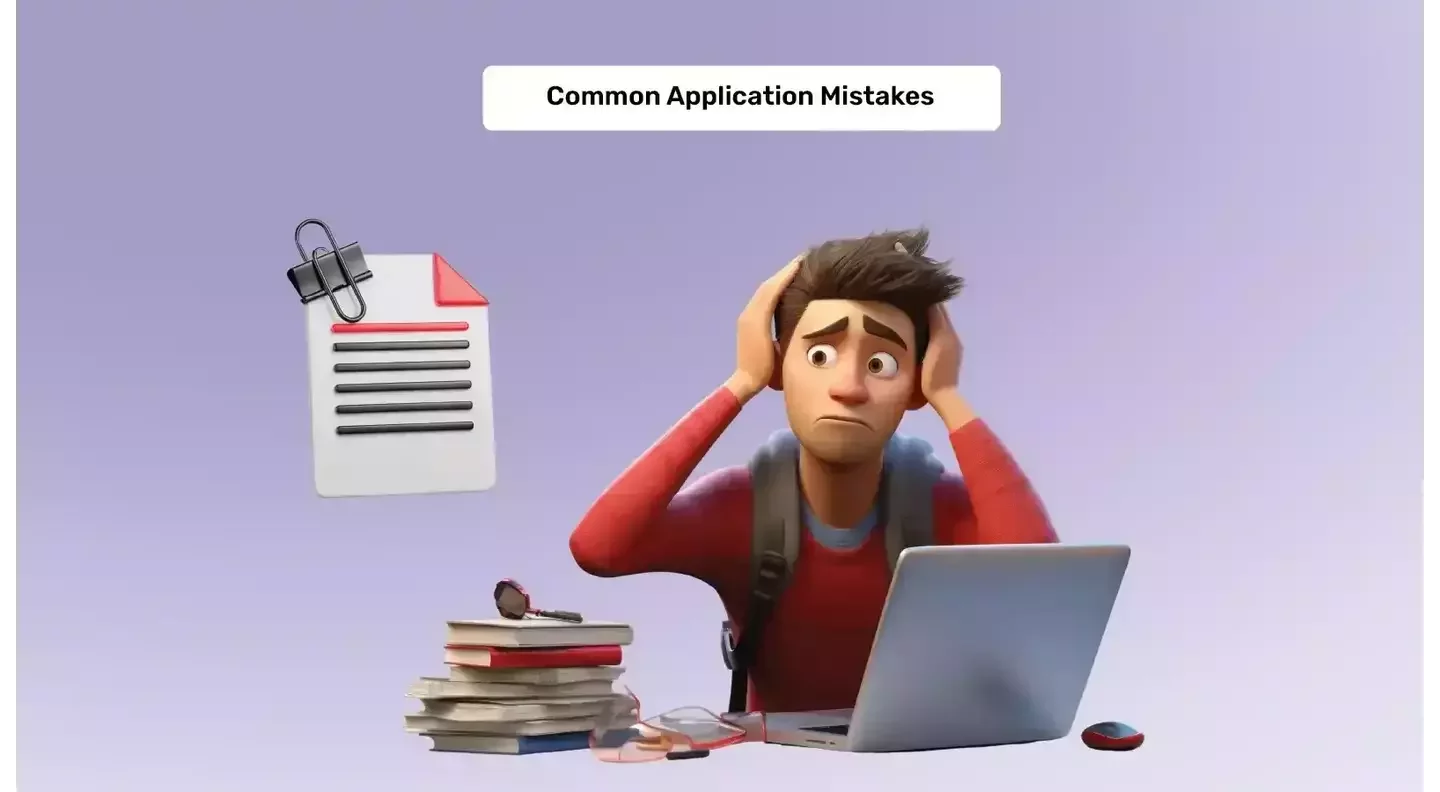Get instant loan offer suitable to your profile !


On this Page:
Applying to grad school? Avoid these 10 common application mistakes that silently hurt your chances. Learn how to submit strong, error-free applications.
Being an applicant to a grad school is not a small task. You have essays, deadlines, transcripts, and recommendations to juggle as you attempt to make yourself noticeable. It is not that many of the applicants are unsuccessful due to lack of talent, but they fail due to simple errors that can be avoided. Submitting in a hurry, writing generic essays, or failing to meet the requirements damages your chances silently. These mistakes occur due to stress, when time is short, or when you are not certain of what the admissions committees want to know. Below are 10 common errors applicants make in grad school applications and how to avoid them.

Here are some common mistakes students often make while applying to grad school. These errors can slow down the process or weaken your application, so understanding them early helps you avoid setbacks.
One of the easiest ways to lose the interest of an admissions committee is by sending the same SOP to every school. Reviewers can quickly tell when an essay has been copied and lightly edited. It also signals that you are not serious about their program. A compelling SOP should highlight specific professors, courses, or unique opportunities offered by that institution.
You can get your SOP reviewed with Gyandhan to ensure correct grammar, content analysis, and readability.
Optional does not really mean optional when you want to be noticed. These essays allow you to go beyond grades and present your story in depth. A well-written “Why this school” response also proves that you are genuinely interested. When you skip these chances, it can appear as though you are less committed than other applicants who took the extra effort.
Last minute submission leads to mistakes such as failure to attach files or unrevised papers. Rushing also does not provide room for feedback or improvements. Applying early eases pressure and reflects genuine seriousness toward the process.
Each school has its own rules, including the format of transcripts, word count, and rules on file names. There are also some applications which need additional questions to be filled after some fields are completed. Lack of these can make your application incomplete and jeopardize your opportunities.
Professors get too many reference requests in application season, and rush requests frequently result in weaker letters. Even a late submission may disqualify an application hence timely requests are very important in effective recommendations.
It is not enough to pile up projects, clubs, or skills to impress admissions committees. What matters is the impact. Always explain what you learned, how you grew, and why each achievement adds meaning to your story.
It is easy to overlook small mistakes when you have read your own essays and resumes multiple times. Having someone else review your application helps catch typos, confusing sections, or repeated ideas that you may not notice.
Many universities, especially in the US, provide fee waivers for international students or first generation applicants. Reaching out early to admissions can save you money and also shows that you are proactive in managing the process.
After submission, universities may update checklists or request additional documents. If you fail to log back into the portal, you might miss these updates and risk being removed from consideration.
Application deadlines are often set according to the university’s local time. Confusing Eastern with Pacific or overlooking the difference from your own region can cause you to miss the deadline entirely.

It is easier to avoid mistakes when you are aware of the common areas of mistakes by students. Some smart tricks can save time, cause less stress, and make you present an application that is well-crafted.







Preparation is as much a part of applying to graduate school as potential. By being aware of the pitfalls and treating every detail with seriousness, your application will reflect diligence, effort and dedication. Every detail you handle thoughtfully improves your chances of making a strong impression on the admissions committee.
If you’re unsure about how your profile, SOP, or application strategy stacks up, GyanDhan’s Consultant Finder can connect you with verified study abroad experts who have guided students through every step, from refining SOPs and shortlisting universities to preparing supporting documents. A bit of expert guidance now can help you apply with confidence, clarity, and a strong plan.
Check out more blogs:



Make it specific to a particular program, referring to particular faculty, courses or projects. If your essay works for any school without changes, it is too general.
Yes, most schools follow strict deadlines based on their local time zones. Your application can get disqualified by being even slightly late.
Most universities in the US have fee waivers with preference being given to international and first generation students. Early communication with the admissions offices may be cost-effective.
Yes, overlooking details like word counts, file naming rules, or supplemental questions can leave your application incomplete. Paying attention to instructions is essential.
Yes, contacting admissions offices directly clears doubts and shows initiative. It is better than assuming and making mistakes.
Check Your Education Loan Eligibility

Ask from a community of 10K+ peers, alumni and experts
Trending Blogs
Similar Blogs

Network with a community of curious students, just like you
Join our community to make connections, find answers and future roommates.. Join our CommunityCountry-Wise Loans
Best Lenders for Education Loan

ICICI Bank

Axis Bank

Union Bank

Prodigy

Auxilo

Credila

IDFC

InCred

MPower

Avanse

SBI

BOB

Poonawalla

Saraswat